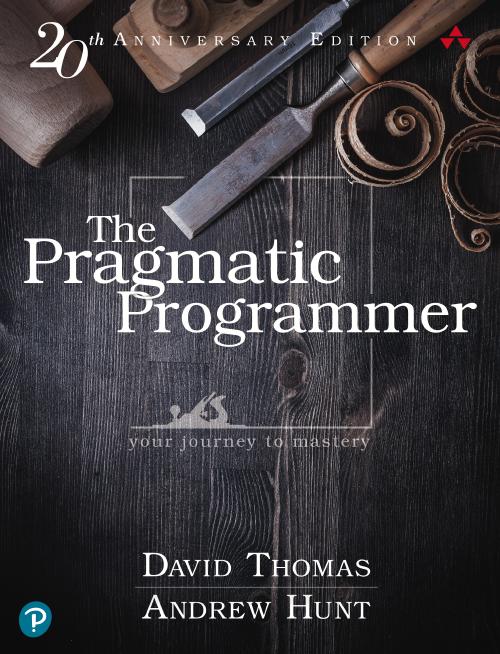Over the years I’ve gone through many books about software development — some deeply technical, others more about mindset and culture. The following list is a mix of resources that really shaped the way I code, work with teams, and think about building software. If you’re looking for inspiration or practical advice to level up as a developer, these are a great starting point.
Tips for Web Application Users – Ricardo Galli
This is actually a blog post, not a book, but it’s still worth a mention. Ricardo Galli wrote a short but insightful piece about how users interact with web applications. It’s a reminder that software is built for people, and that common sense in usability and interaction matters just as much as clever code.
Even though it’s over a decade old, many of the points still apply today. It’s the kind of read that makes you stop and reflect on how small decisions in design or usage can have a big impact on the overall experience.
The Developer’s Code: What Real Programmers Do

Ka Wai Cheung’s book isn’t about syntax, algorithms, or frameworks — it’s about the craft of programming. It covers around 50 short lessons on topics like work habits, communication, and how to build a career in software that goes beyond just writing code.
What I love about this book is its honesty. It acknowledges the messy reality of projects and encourages developers to focus on values like clarity, responsibility, and adaptability. It’s perfect if you’re looking for wisdom from someone who’s been in the trenches.
The Pragmatic Programmer: From Journeyman to Master

This is the classic. Andrew Hunt and David Thomas filled this book with practical tips and timeless advice that developers still quote today — things like “Don’t Repeat Yourself (DRY)” or “Program Close to the Problem Domain.” It’s one of those books that you can revisit at different stages in your career and always find new meaning.
It’s not just a book about writing better code, it’s about becoming a better problem solver. The metaphors and practices in it help you shape your thinking and become more effective at tackling real-world problems. Every developer should read it at least once.
Web Operations: Keeping The Data On Time
Written by John Allspaw and Jesse Robbins, this book dives into the world of running web applications in production. It’s all about reliability, monitoring, scaling, and the human side of keeping systems alive. If you’re curious about DevOps culture or site reliability engineering (SRE), this is a fantastic read.
What stands out is how it bridges the technical and organizational aspects. It’s not enough to have tools and metrics — you need processes, collaboration, and a culture that embraces failure as a learning opportunity. It feels ahead of its time, even today.
Scalability Rules: 50 Principles for Scaling Web Sites
Martin Abbott and Michael Fisher condensed their experience running massive systems into 50 very practical rules. From database design to caching strategies, this book is essentially a checklist of what to think about if your app suddenly takes off and millions of people are using it.
What I appreciate here is the balance between theory and practice. The rules are simple to understand, but applying them forces you to think deeply about trade-offs. Even if you’re not running a high-traffic site yet, reading this gives you a mindset that will help you design smarter systems.
The Productive Programmer
Neal Ford wrote this book for developers who want to get more done without burning out. It’s full of tips on automation, tooling, shortcuts, and mental habits that make you more effective day to day. Think of it as a productivity manual tailored specifically for programmers.
It’s not just about typing faster or memorizing shortcuts — it’s about building a workflow that frees up your brain for creative problem solving. I still use a few tricks I first discovered here, and they’ve saved me countless hours over the years.
Code Complete 2nd Edition
Steve McConnell’s Code Complete is like an encyclopedia of software construction. It covers everything from variable naming and code readability to testing and refactoring. While it’s dense, it’s one of the most comprehensive resources you can read on writing maintainable, high-quality code.
What I find valuable is that it’s grounded in research and real-world examples. It doesn’t just tell you “what” to do but explains “why” certain practices lead to fewer bugs and better systems. It’s a must-read for anyone serious about their craft.
High Performance MySQL, Optimization Replication
This book, by Baron Schwartz, Peter Zaitsev, and Vadim Tkachenko, is the definitive guide to MySQL performance. It digs deep into query optimization, indexing, schema design, and replication setups. If you’ve ever struggled with slow queries, this book shows you exactly how to fix them.
It’s a very hands-on resource, full of benchmarks, case studies, and concrete advice. Even if you’re using other relational databases, the principles translate well. For anyone who works with MySQL at scale, this is the bible.
👉 If you had to pick one from this list, I’d say start with The Pragmatic Programmer. It’s timeless, easy to read, and will change the way you think about development forever.